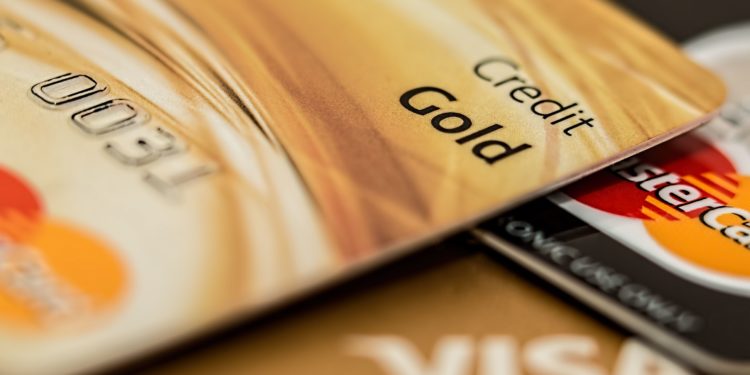When you’re browsing online for financial products, a variety of factors play into your buying decision.
Cashback rewards, extra fees, and other card attributes all influence which card you ultimately apply for.
And although these are important to consider, one of the most influential factors is the interest rate.
Now, it would be fantastic if the interest rate was stated plainly for your convenience.
But unfortunately, it seems like banks and financial companies go out of their way to obscure the most critical information (and usually at your expense).
Instead of stating one interest rate, they have two different rates for most of their products: APR and APY.
The acronyms may only be different by 1 letter, but APR and APY are actually different.
After reading this article, you’ll understand both of them and how to choose financial products based on APR and APY.
But before our discussion about APR and APY goes any further, I want to make sure you understand compound interest.
First, What Is Compounding?

Different types of accounts can have different compounding periods, so some math is required to find out how to get the best bang for your buck.
For example, let’s say you’re looking to open a savings account and you’re interested in getting the highest interest payment possible. One candidate has an interest rate of 3.1% compounded annually, while the other has an interest rate of 3% compounded daily.
The first bank account sounds more attractive, but that’s how banks try to save money on interest.
If you actually do the math, the second account pays more interest on a yearly basis due to compounding.
The importance of understanding compound interest cannot be understated, as it can quite literally make or break your bank account.
After all, Albert Einstein allegedly claimed that compound interest is the “eighth wonder of the world” and “he who understands it, earns it; he who doesn’t, pays it”.
All About APR
APR stands for Annual Percentage Rate.
It’s kind of like your standard interest rate, but with a slight twist.
APR takes your monthly interest rate and multiplies it by 12 to give you your yearly interest rate.
This rate is useful because you can quickly see what you’d owe each month in interest.
Make sure to read the fine print when opening a new account with an APR. Compounding interest may not be reflected in the APR, but the timing of the interest rate application could be different.
Some accounts might charge you the interest rate once a year, while others might charge a fraction of the interest rate in smaller time periods.
For example, instead of charging you 15% at the end of the year, you may be charged 1.25% per month and that interest will be added to the “principal” amount
How To Calculate APR
To find your APR on a loan or credit card, there are a few steps:
- Add fees and interest paid together
- Divide #1 by the total amount of the loan
- Divide #2 by the total number of days in the loan term
- Multiply result by 365
- Multiply #4 by 100 to convert the decimal to a percentage
Of course, the APR is usually stated in the terms and conditions of the debt instrument you’re looking to take on.
Despite this, it’s still important to be as educated a consumer as possible in such a complicated industry.
Types of Accounts With An APR
You’ve probably heard of APR a lot more than APY. Every time a credit card commercial comes on, you hear them talk about the APR of the credit card.
Either way, here are some accounts that have an APR:
- Credit cards
- Loans
Essentially, any debt you take on will have an APR since you owe someone money.
Credit Cards
Loans usually don’t get too complex with their APR, but you need to watch out for credit cards.
Many credit cards like to draw you in with an enticingly-low APR. Take advantage of this, but don’t get carried away; once that low-APR period ends, the APR shoots up to the normal rate.
You’d hate to be carrying a large balance on my card right when my interest rate drastically increases!

Carrying a high balance can lead to other terrible things, too.
High balance means more interest. The more interest you pay, the less of your finite money supply remains to pay off the balance.
This can lead to a downward debt spiral before you know it. Soon, you might not even be able to afford your minimum payment!
Oh, and I forgot to mention: failing to at least make the minimum payment on time can cause the company to subject you to a much higher penalty APR, continuing your downward spiral into financial hell.
Just pay your credit card off on time every time and you’ll never have to worry about any of this.
Anyways, onto APY.
All About APY
APY stands for Annual Percentage Yield.
It’s the percentage interest you earn over a year-long period on things like bank accounts or certificates of deposit.
Accounts with an APY compound the interest you earn, which again means you can earn interest on your interest.
When the bank pays you interest on your savings, that interest payment goes straight into your bank account (increasing the principal amount in your savings account).
Your next interest payment will be the same percentage. But since last period’s interest was added to your principal amount, you’ll be receiving the same percent cut of a larger sum of money.
Compounding is powerful!
How To Calculate APY
Here’s how to calculate your APY:
- Divide your interest rate by the number of compounding periods per year
- Add 1 to the result
- Take #2 and put it to the “n”th power, where n is the number of compounding periods per year
- Finally, subtract 1 from your result from #3
Again, it’s useful to know this even when it’s stated. Stay informed!
Types of Accounts With An APY
APY is all about the interest you earn. That’s where the Y for Yield comes from.
The following are some accounts that will have APYs:
- Savings accounts
- Certificates of deposit (CDs)
- Money market accounts
Again, when you’re looking to open one of these accounts, don’t just take the stated rate into consideration. Make sure to do some quick math to determine which account truly yields the most interest to you.
A minute of your time and an ounce of your brainpower could net you some extra cash.
The Difference
Although similar, APY and APR have one key factor that really sets them apart.
You know it’s significant if it gets Einstein’s attention!
So what is the difference?
There’s two, both of which we alluded to earlier:
- What you earn vs. what you pay (APY vs. APR)
- Compound interest being reflected in the rate
Don’t let confusing financial jargon confuse you: APR vs. APY boils down to paying money vs. getting paid.
Some Important Notes On APR And APY
I bet you’ve noticed that APRs tend to be much higher than APYs. It’d be nice to earn 16% interest every year, rather than 2%.
Unfortunately, you aren’t a bank, so you don’t get that extremely attractive interest rate.
Also, APR or APY aren’t the only things that matter when browsing financial products.
Make sure to consider other factors ALONG with APR/APY to make a comprehensive decisions that is best for you. If that means a slightly higher credit card APR but great perks and bonuses, then the higher APR might be worth it.
Don’t Get Fooled
It’s very easy to be overwhelmed when shopping around for financial products.
The actual values of many products are obscured by financial jargon, complicated terms/conditions, and many other moving parts.
It works very well in favor of the people selling you these products, as most consumers don’t want to read up on all the confusing terminology.
In such a world where banks and lenders aren’t always your friends, it’s critical that you understand APR and APY.
Always make sure to get the lowest APR and the highest APY when possible (accounting for the other perks and bonuses of financial accounts/products) and you’ll save money hand over fist.














































